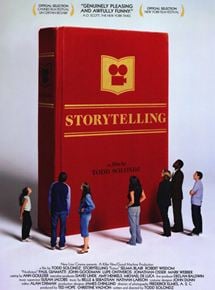


Looking at genre can help readers, viewers, or listeners determine the meaning(s) that the author intends to convey.Ī genre is a body, group, or category of texts that resemble one another because they share a sufficient number of similar motifs, themes, visual designs, ideas, characters, story formulas, and plot devices. The use of genre can help authors or creators to structure the meaning of their texts. Genre can be an important factor when trying to interpret a work of art or a book, including a work of non-fiction. Hermeneutics is the science of interpretation, or deciphering meaning(s). Hermeneutics, the Science of Interpretation
Storytelling movie movie#
This article deals specifically with movie genre, but sometimes treats the subject of movie genre in an archetypal, mythic manner. The first answer helps us organize stories according to their genre. The second answer leads us to the field of interpretation called myth studies or archetypal analysis. They possess a timeless, universal quality. Second, although different stories satisfy different needs, many stories have common themes, settings, character types, situations, and other recurring patterns. A hard news story on page one affects us differently than a human interest story in the magazine section or a celebrity profile next to the movie listings. A comedy evokes a different response than a tragedy. Over the years, scholars have given us at least two basic answers to this question.įirst, different stories satisfy different needs. Why do we respond so strongly to stories? They arouse our compassion and empathy, spur us toward truth and love, and sometimes even incite us to hatred or violence. They help us escape the daily cares and woes of our present lives for a while and travel to different times and places. They bring us laughter, tears, excitement, and joy. They stimulate our minds, kindle our imaginations, and stir our emotions.

They make a profound difference in our lives.


 0 kommentar(er)
0 kommentar(er)
